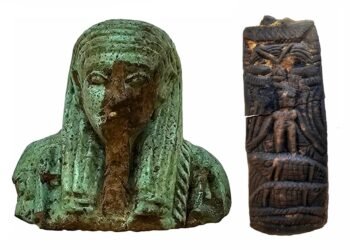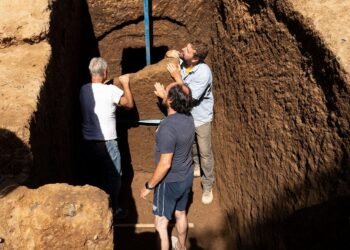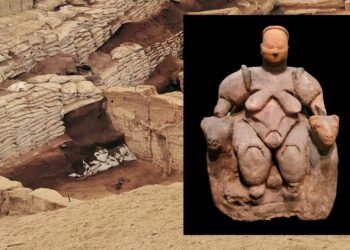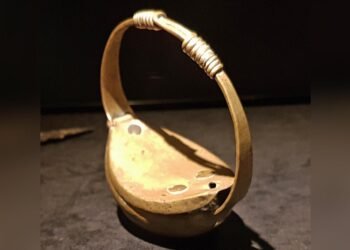A third-year archaeology student at the University of Leicester, Davidson Copeland, has unearthed six complete Roman pots. This find occurred during Copeland’s first excavation, part of a community dig at Chester House Estate near Irchester, Northamptonshire. Chester House Estate is known for containing one of Britain’s best-preserved Roman small towns.

The excavation, conducted in June 2023, revealed the pots at the bottom of a deep pit in the suburbs of the ancient Roman town of Irchester. The careful placement of these items suggests they were intentionally positioned, possibly for practical uses such as money boxes or religious offerings, as indicated by holes in some of the pots.
The collection includes beakers, a small flagon, two jars, and a second-century CE Samian ware bowl, identified by archaeological ceramic specialist Dr. Adam Sutton from Aurelius Archaeology. The Samian ware bowl, a type of red-gloss Roman pottery mass-produced from the 1st century BC to the 3rd century CE, bears a stamp marking its maker as Dexter, who was active in central France around CE 130.
Professor Sarah Scott, a lead archaeologist at the site and professor of archaeology at the University of Leicester, said: “It was an incredible experience for our student Davidson, and we are very proud of his efforts,” she said. “The successful excavation was the result of exceptional teamwork and expert guidance. This fascinating discovery has generated huge interest and excitement amongst team members and visitors alike.”
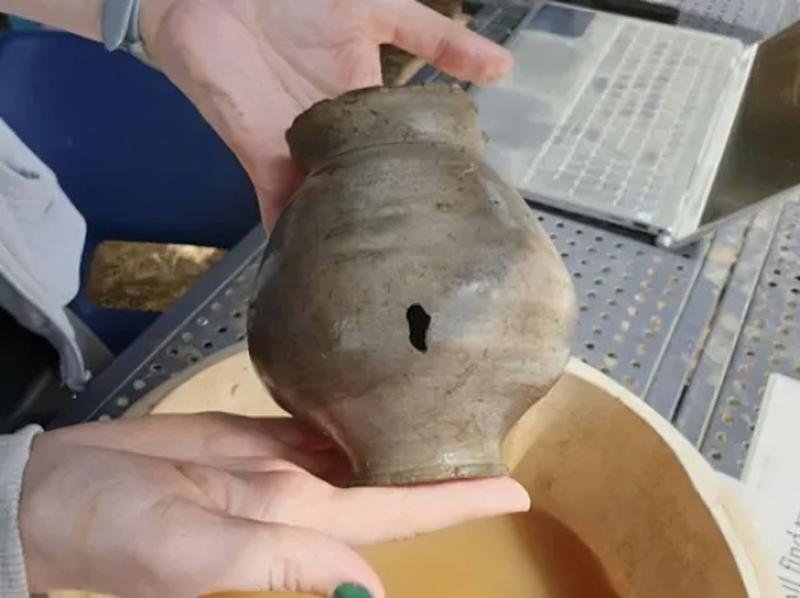
The Chester House Estate, owned by North Northamptonshire Council, is an important archaeological site. The ongoing excavations aim to reveal more about the lives of the inhabitants of this ancient Roman town by uncovering houses, workshops, and cemeteries. The collaboration between the University of Leicester and the North Northamptonshire Council through the Irchester Field School offers opportunities for people of all ages to engage in archaeological investigations.
Professor Scott added: “It is fantastic for our students and Chester House Estate volunteers to have the opportunity to work together at this nationally significant site. The pots provide a tangible link to the past but have also sparked new friendships and a sense of community in the present.”
This year’s excavation has already commenced and will continue until July 12, 2024. Visitors are encouraged to visit the site during the ongoing investigations to witness the excavations in progress and interact with the archaeology team.
The pots will be displayed at Chester House Estate’s Roman Festival, scheduled for Saturday and Sunday, allowing the public to view these historical artifacts firsthand.





